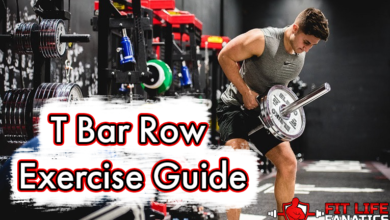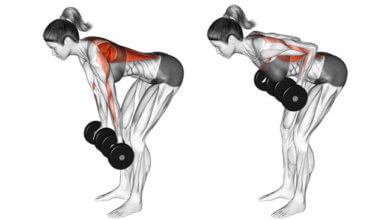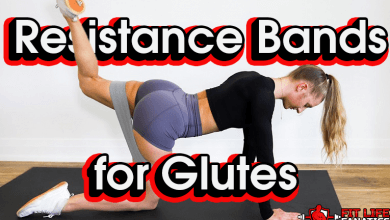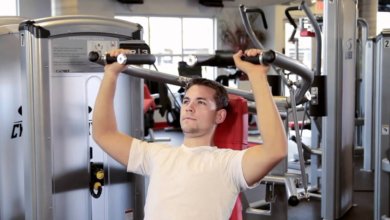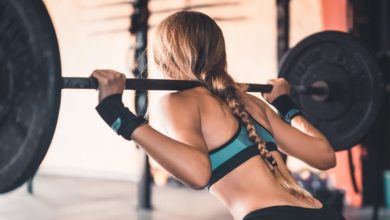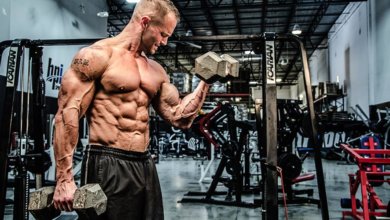Why Do You Weigh Less in the Mornings? How Much Weight Do You Lose When You Sleep?
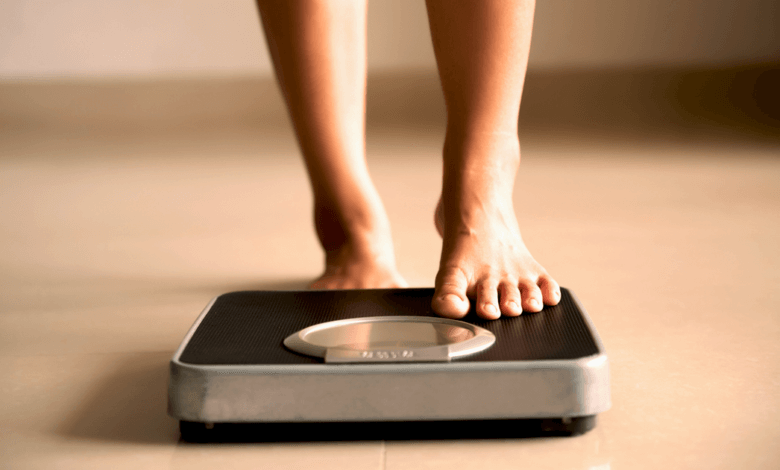
Ever stepped on the scale and noticed that you weigh noticeably less in the mornings right when you wake up from sleeping than you did the night before?
If you’ve ever worked with a nutritionist or coach, you might have noticed we tell people to weigh themselves in the morning right when they wake up – rather than the night before.
The reason for this is that we all weigh less in the mornings..up to 5 lbs. less in extreme cases.
But just why do you weigh less in the morning versus before going to sleep?
The answer is quite simple.
It’s because you’re ALIVE! Even though you’re not conscious during sleep (or shouldn’t be) for most of the night, doesn’t mean your body just stops working.
The thousands of processes that keep you living are still happening, and for that, they need to burn calories!
The 3 MAIN CULPRITS of Overnight Weight Loss During Sleep
There are three factors that cause the huge difference in weight you see every morning and these are:
- Dehydration
- Fasting
- Calorie Consumption.
Let’s break it down one by one and see how exactly these three make you 5 pounds lighter every morning.
Dehydration

Now I now seeing the word dehydration might make some of you worried you’re not getting enough water. But you shouldn’t be!
While you should definitely make sure you drink at least half a gallon a day, this is not what I meant when I reference dehydration.
It’s pretty common to wake up feeling thirsty, even with a dry mouth. I always wake up thirsty. I literally keep my water bottle next to my bed for when I wake up.
This is because you actually lose a lot of water while sleeping. Most of it is by sweating, but also by breathing and even drooling!
Believe it or not, water is actually pretty heavy, only 16 ounces weigh over a pound.
That’s why you’ll also see this effect if you weigh yourself before and after working out, you might think you lost a lot of weight, but you actually just excreted a couple of pounds of water!
If you drink a lot of water before bed you will notice that you actually lose quite a bit of weight just by going pee.
What does this mean then? Are you getting leaner? Well unfortunately no, this is just water weight. But don’t be discouraged! You can still lose it the regular way and drinking water will actually help you do that by keeping you feeling full.
Calorie Consumption

While it is true that our bodies slow down when we sleep, countless processes and reactions are still taking place to keep us alive.
Like any machine, your body needs fuel and during the hours that you are sleeping, there is no fuel coming in, in the form of food, so there is no other choice but to burn what is stored.
Luckily, this means that your body is actually burning fat while you sleep!
Ever noticed how hungry you wake up sometimes? I know, my body will actually wake me up because I get so hungry.
In fact, sleep is one of the best weight loss tools out there. This is why any athlete knows getting enough sleep is paramount.
By getting the recommended 7-9 hours of sleep per night, you’re promoting muscle growth, recovery, and losing fat.
On the other side of that coin, if you don’t get enough, your metabolism slows down and even your brain function decreases.
Of course, the amount of weight you lose is highly dependent on what you eat before bed and how long you sleep, so healthy habits are still a must.
If you have a pound of ice cream before bed, your body will have more than enough fuel for the night.
Fasting
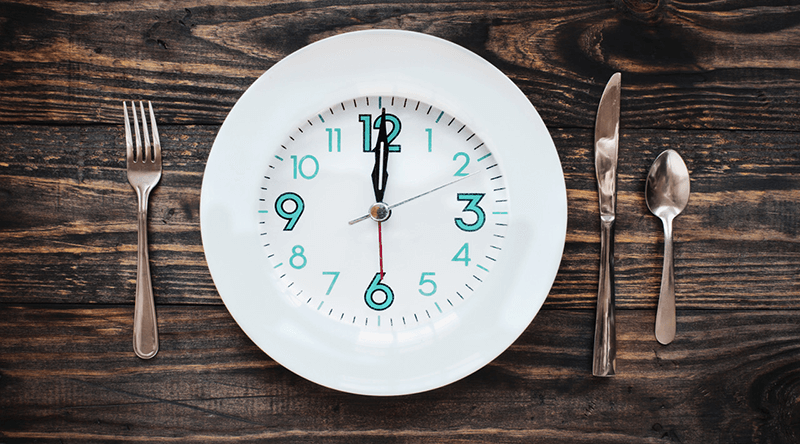
Most people gasp in shock when they learn that some athletes fast for up to 16 hours a day. What most don’t realize though is that they most likely fast from 10 to 12 hours every day and don’t even notice!
Think about it, if you have dinner two hours before bed, and then get your recommended 8 hours of sleep a night, you just fasted for ten hours!
Even though you were sleeping for the most part.
This highly relates to our previous culprit of calorie consumption. In fact, it could be said that they work together.
Like I said above, it’s the combination of not intaking any new calories, fasting, and the continued work of your metabolism and bodily processes that results in your body needing to burn fat.
What Is The Best Time To Weight Yourself?
After explaining how weight fluctuates, many of my clients ask me the same question. “Then why do you ask me to weigh myself in the mornings? Shouldn’t I do it at night?
The answer is no, let me tell you why.
Why You Shouldn’t Weigh Yourself at Night Before Going to Sleep
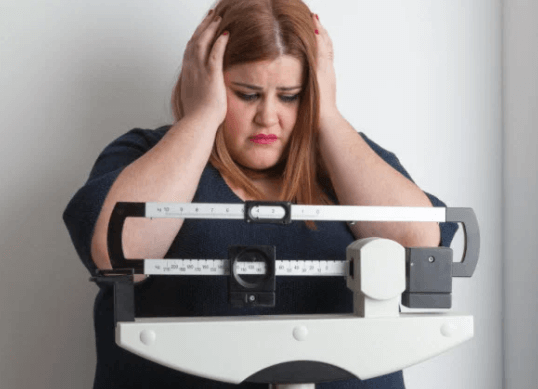
When people ask me this, they usually don’t realize that the number on the scale is not what really matters, it’s simply a tool to use as a reference.
We track that number every day, and if it goes down over a period of time, you’re losing weight. If it doesn’t then you’re not.
This is why we need to keep things as consistent as possible, if you weighed yourself with two different scales, you’d probably end up with similar, but different results.
The same principle applies to the food you eat during the day.
Especially for those that don’t follow a meal plan, what you put in your body every day can vary wildly. This in turn will have an impact on your weight on any given day.
Imagine if right before weighing in, you had an 8-ounce glass of water. Just like that, you gained half a pound. This variance makes it harder to pinpoint if your weight is going up or down and it makes it hard to adjust accordingly.
Why It’s Best To Weigh Yourself In The Morning After Waking Up
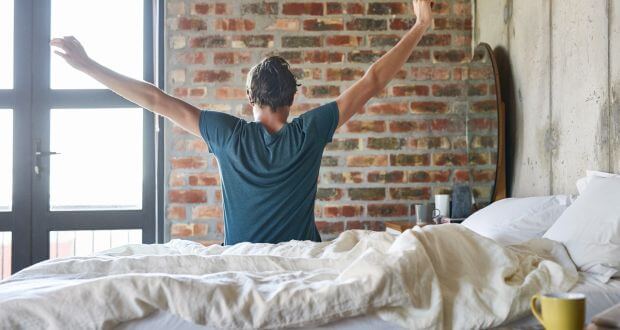
Like I said above, in order to have an accurate measurement of your weight, you need to eliminate as much instability as possible, and in our case, that means the intake of food and water.
While there is still some variance that occurs in the mornings, like how much you ate and drank the night before, it is nowhere close to what happens at night.
That’s why mornings are still the best time to weigh yourself, and as a professional coach, I have all my clients do it as soon as they wake up.
Picture sleeping as a reset button.
Every night, while you sleep, your body digests all the food you put into it before bed. You wake up without having had anything to eat or drink for several hours, your body is as “stable” as it gets.
So hop on the scale, and let’s see how it goes. Remember of course that you should not be wearing clothes and should go to the bathroom before you jump on the scale if needed.
How many calories do you lose while sleeping
We’ve already established that you do burn calories when sleeping thanks to the thousands of reactions that keep going on in your body.
However, establishing the actual number of calories is harder than it seems. Like most things regarding the human body, there is no “one size fits all” answer.
According to a Harvard study, the primary factor is weight. They recorded that in 30 minutes of sleeping, a 125 lb person burns 19 calories, while a 185 lb one burns 29 calories.
With this in mind, we could do a simple calculation of hours of sleep x calories burned to get a rough estimate. 38 times 8 equals 304 calories burned by a 125-pound person every night.
Keep in mind that as your sleep quality and quantity decreases, your metabolism will slow down and the number of calories burned along with it.
So whatever you do, get enough sleep.
Simple Tips to Lose Weight
Many people give up on losing weight because they think they’ll have to change their whole lifestyle and be obsessive about their food in order to look a bit better on the beach next summer.
While you certainly can go that route, counting every calorie and macronutrient, in fact, many of us do.
Some simple changes to your routine can fix the problem without the need of weighing your food and tracking your macros.
Eat more protein
While everyone knows athletes need to consume more protein to gain and increase muscle mass, most people don’t realize that it also applies to them!
While increasing protein intake won’t directly burn fat, when coupled with exercise it leads to muscle growth, which in turn speeds up your metabolism.
Not only that, but protein also helps people feel “full” earlier and stay that way for longer, so you’ll be decreasing how many calories you eat because you’re no longer hungry.
Especially when eating leaner meats like chicken or fish.
Related: Best Protein Powder For Smoothies – My Favorite
Eat less Carbs and Fats
I know it’s pretty obvious advice for anyone used to healthy eating, but due to the use of the word “sugars” to refer to carbohydrates, folks who don’t know any better think that they should only avoid candy, not that huge serving of mashed potatoes. Wrong.
This is not to say that you shouldn’t have ANY carbs or fats, both are necessary for your body to work, and depriving yourself completely can lead to weird reactions. Fats are necessary for hormone transport, while carbs are essential for your brain.
What you should do is avoid hidden sources of calories, like salad dressings, and sugary drinks like soda or alcohol and instead stick to healthier carbs like brown rice, sweet potatoes, and oatmeal and healthier fats like olive oil.
Or if you are like me you just substitute your junk food consumption with a meal replacement. This is what I did.
Ka’chava is my go-to option not only for my morning shake (I prefer taking meal replacement shakes for breakfast) but also for when I feel a sugar craving coming on.
You can check out my full Ka’chava review here.
Or if you want you can check it out on amazon by clicking here. The reviews speak for themselves.
Learn How to Cook!!

While it may seem pretty unrelated, learning how to cook is a game changer for any fitness enthusiast or anyone trying to get healthier.
Restaurants and stores don’t really care about your health or weight, they care about your business. To get your business, these businesses need to make the tastiest food possible, so that you’ll keep coming back for more.
What this means is that they’ll often add a ton of carbs, fats and sodium to your food, since these 3 make food taste better and they’re cheap, while skimping on the proteins because they’re a lot more expensive.
Related: Best Tasting Low Sodium Protein Powders – check these out, you will love them.
Learning to cook is not only a great life skill that anyone living alone should have, but will also allow you to see what goes into your plate and eventually your body.
So even when not tracking anything, you can make the choice to use healthier, less calorie-dense ingredients.
I know some of you will still be too lazy to get cooking just for the health benefits, but think of the monetary benefits! A home-cooked meal can taste just as good, if not better than a store-bought one for a fraction of the cost!
Now You Know Why You Weigh Less In the Morning
I hope that I was able to calm some of your fears about the weight fluctuations everyone has in the mornings and show you some ways to get started on your weight loss journey.
Also, I want to stress once again the importance of sleep, not only for weight loss, but life in general.
No, you are not going to go to sleep with no abs and wake up with a 10 pack, for that you need to do double crunches, cable crunches and other exercises that target your core. but you’ll feel better, perform better, and just be in a better mood.
Finally, if your diet is in check, and you want to start exercising to really shed those pounds, I’ve written quite a few articles on workout routines that you’ll find useful, be sure to check them out.
Recommended Readings;
- Protein Powders For People With Sensitive Stomachs
- What Height is Considered Short?
- How Can I Build A Bubble Butt
- How to Get a Jiggly Butt: What Worked For Me
- How To Get Rid of Mom Butt: What I Did to Build My Booty
- How Long Should I Run on the Treadmill?
Resources:
- https://www.acpjournals.org/doi/10.7326/0003-4819-153-7-201010050-00006?page=435&issue=7&volume=153&
- https://www.sciencefocus.com/the-human-body/why-do-i-weigh-less-in-the-morning/
- https://www.youtube.com/watch?v=c3icWOV8cSo
- https://www.health.harvard.edu/diet-and-weight-loss/calories-burned-in-30-minutes-of-leisure-and-routine-activities
Ben Mayz
Hi there! I'm Ben, main author and chief editor at Fitlifefanatics.com. I have been obsessed with Strength Training and Fitness for 18 years now.
My passion for living a happy fit lifestyle is what made me realize that fitness is what I wanted for my future.
I went on to earn my Masters in Sports Training & Biomechanics.
My passion for Strength training & fitness and my love of helping others is what made me start Fitlifefanatics.
Here, myself, and a team of specialist aim to provide the most accurate, and actionable information possible in hopes to help foster the fitness community forward.
You can learn more about Fitlifefanatics on our About Page
